Aphids attacked eggplants in a greenhouse - what to do?
The situation when aphids attacked eggplants is not surprising. Pests love this crop very much and are able to destroy the entire crop in the bud. The microclimate of greenhouses promotes the active reproduction of insects, but the fight against them requires caution in a limited space. The best solution would be to prevent the appearance of aphids, and in the event of an attack, to prevent them from multiplying to an infinite number.
Aphid species parasitizing eggplants
There are thousands of species of aphids in nature. Some of them parasitize on some specific plants, others are omnivores and can harm various crops. More often than others, two types of aphids are found on eggplants: green peach and melon or cotton.
Insects differ in appearance and attack eggplants at different stages of the growing season:
- Green peach aphid may appear on freshly planted eggplant seedlings. Insects are small in size and pale green in color. The lower the temperature in the greenhouse, the more intensely the aphid is colored. The life cycle of parasites includes several stages of development. Insects can be winged and wingless. A characteristic feature of this species are peculiar outgrowths on the lower part of the body. Winged forms have a dark spot on the abdomen.
- Melon (aka cotton) aphid especially common in warm regions, where it parasitizes on crops of the same name. In temperate climates, the parasite usually colonizes greenhouses with an ideal microclimate for itself. A massive insect attack on eggplants occurs in the middle of summer. This species has a wide variety of aphid forms. Insects can be larger and smaller. The color varies from yellowish to black. Some adults have wings, while others do not. Small light aphids reproduce less actively. Large individuals of black and green aphids are more harmful, as they reproduce quickly and can destroy all eggplant plantings in a greenhouse in a few days.
When pests appear, it is important to carefully consider their appearance. After all, if you do not take urgent measures when a large dark aphid appears, you can be left without a crop. Small greenish varieties cause much less damage to plantings, but you need to fight them too. Additional signs of the appearance of parasites are sticky spots and grayish bloom on the leaves, brown dots at puncture sites, and the appearance of a large number of ants in the greenhouse.
What damage does the pest do to eggplants in the greenhouse?
Aphids on eggplant do the same harm as in the case of other crops. Insects are classified as Homoptera and are characterized by a very rapid reproduction process. In a short time, aphid colonies are formed, which almost entirely populate leaves and young shoots of plants. This leads to negative consequences:
- Due to the fact that aphids suck sap, the plant becomes weakened, stops growing, and if severely infested, it can dry out completely.
- Sticky insect secretions contribute to the development of a sooty fungus, which subsequently leads to a deterioration in photosynthesis and respiratory function of the leaves.
- There is a high probability that aphids will transmit viruses to the plant, which will lead to the development of incurable eggplant diseases.
- Plants shed flowers and ovaries, which threatens with loss of yield.
Sometimes it happens that the pest is destroyed in a short time by its natural enemies, for example, ladybugs. But the chances of their appearance in greenhouses are not very great, Therefore, it is better to rely on your own strength and to start the fight against aphids immediately.
Primary methods for the destruction of aphids
When aphids have just discovered their presence and there are not too many pests, you can try to remove it using the simplest methods that do not require preparation, significant waste and a lot of time. These include:
- mechanical method of destruction;
- flushing with water pressure;
- using green soap.
Aphids are not very mobile and do not have a protective shell to easily crush them with your hands. The method is not very pleasant, but effective at the initial stage of pest infestation. For convenience, work is best done with gloves. Crushed insects can be left on the leaves or washed off by spraying.
If there is no desire to kill aphids, it is permissible to use only water, supplying it under slight pressure. Small insects are easily washed away by even a weak jet pressure. Only warm water should be used for the procedure, otherwise, instead of helping the plants, you can shock them from the temperature drop. The pests are extremely small and weak, which makes it difficult for them to climb back onto the plants, so this method is considered quite effective.
The use of green soap based on potassium salts with insecticidal properties helps to get rid of aphids. It is released in liquid form. For spraying, prepare a solution of 400 ml of green soap and 10 liters of water. When spraying, the composition must necessarily fall on the reverse side of the leaves, where aphids are mainly concentrated.
The use of chemicals
Chemical insecticides for aphid control are used mainly in the early stages of the growing season. It should be borne in mind that the last treatment should be carried out 2-4 weeks before the removal of the fruits. The waiting period, after which vegetables can be consumed without fear, is necessarily indicated in the instructions for each preparation. Closer to the beginning of fruiting, it is better to use biological insecticides that are safe for humans. All manufacturer's recommendations for dosage and use of funds must be strictly observed.
Insecticides that effectively kill aphids:
- "Aktara". Low-toxic, effective drug. With a mild stage of infection, it can get rid of aphids in 1 treatment. It penetrates the insect organism by contact and intestinal route and causes their paralysis. Begins to act immediately. The solution is prepared from 2 g of the drug per 10 l of water. First, the powder is dissolved in 1 liter of liquid, and then the remaining volume is added.
- "Pirimor". The drug acts quickly and efficiently, but it is highly toxic, and therefore requires careful handling. You can remove insects with an insecticide in 2 treatments. Today "Pirimor" is considered one of the best drugs for aphids, it destroys even populations resistant to the action of other agents. Eggplants are sprayed with a solution prepared at the rate of 1 g of insecticide per 1 liter of water.
- "Aktofit"... The tool belongs to the group of biological products and can be used during the fruiting period. The main substance - aversectin, has a neurotoxic effect on pests. Penetrates into the body through the outer covers. The product is compatible with other insecticides. The required concentration of the drug for the destruction of aphids is 8 ml per 1 liter of water. The product works only at temperatures above + 22 ° C.
- "Arrow". Biological insecticide based on the spores of specific bacteria that are active against certain insects. When used correctly, the product is safe for humans, animals and bees. Can be applied during fruiting. The working solution is prepared from 50 g of powder per 10 l of water.
- Biotlin. An enteric drug based on imidacloprid.Aphids die within 3 days after treatment. The product can also be used to kill ants. 5 ml of the drug is consumed per 10 l of water.
- Fitoverm. The product belongs to biological insecticides and destroys most of the harmful insects. At the same time it has an antifungal effect. It is analogous to "Aktofit". The drug is not toxic to humans and animals. Eggplant spray solution is prepared from 10 ml of insecticide per 1 liter of water.
To achieve the best effect, it is recommended to alternate the preparations with each other. The required frequency of treatments is indicated in the instructions. During the preparation of the solution and the spraying, you need to protect yourself with a respirator, glasses, gloves and use closed clothing.
Using folk recipes
Aphids are repelled by herbal infusions containing bitterness, burning and pungent components. Raw materials are first brewed with boiling water, then insisted, filtered and used for spraying. Below are several similar recipes (the number of components is given per 10 liters of water):
- Chop 2-3 medium onions, pour 1 liter of water and let it brew for a day, pour in the remaining water. Add 30 g of grated laundry soap to the finished infusion and mix thoroughly before use.
- Finely chop 3 hot pepper pods with a knife (wearing gloves). Pour a mass of 1 liter of water, bring to a boil and let it brew for 5-6 hours. After that, the infusion is filtered, the rest of the water is added and the eggplants are sprayed.
- The wormwood herb is cut in such an amount to fill the bucket halfway, pour cold water, leave for 24 hours, boil over low heat for 30 minutes, filter and bring to full volume.
Folk remedies are used 2-3 times with a week break. It is better to do the processing early in the morning, before the onset of heat or at sunset. If eggplants are sprayed during daytime, the plants can get burned.
Prevention of infection
To scare away aphids in the greenhouse, you can plant fragrant plants around the perimeter of the eggplant beds, for example, nasturtium, garlic, coriander, fennel, marigolds. To attract natural enemies of aphids (hoverflies, ladybirds, lacewings), you can plant parsley and dill in the greenhouse.
It is imperative to observe crop rotation when changing crops. It is allowed to return eggplants to their original place after 3-4 years. Aphids most often attack weakened plants with thin leaves that are easier to puncture. Observance of the rules of agricultural technology, the use of balanced fertilizing helps to ensure that the plants remain strong and healthy.
The fight against aphids is almost always prolonged. The pest disappears and reappears. That is why it is better not to miss the first signs of infection and immediately treat the eggplants with the products of your choice, preventing the insects from greatly multiplying. We must not forget about the breeding of ants that contribute to the dispersal of aphids.
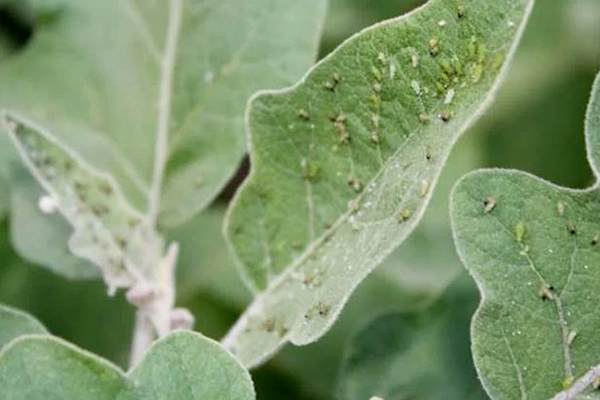
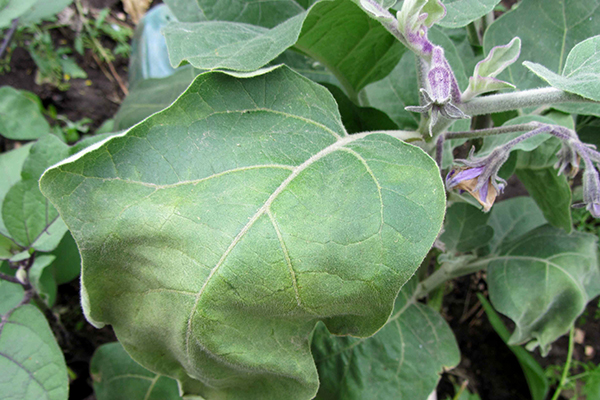
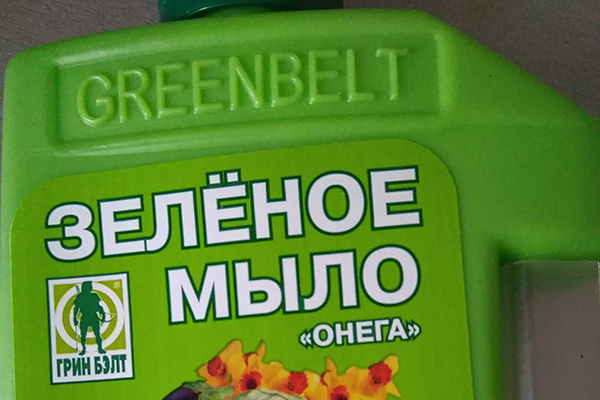
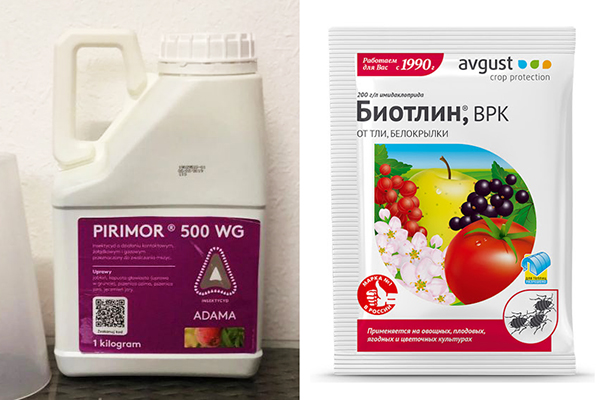
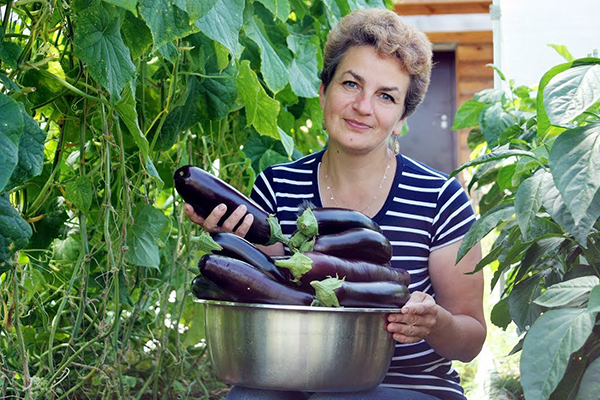
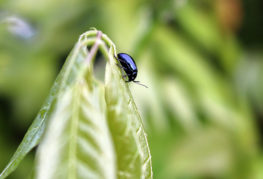
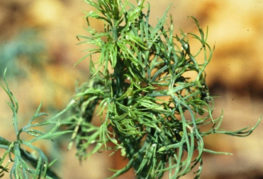

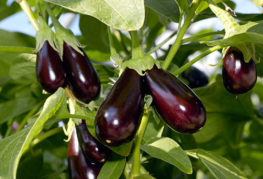
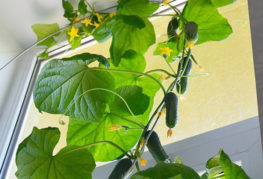
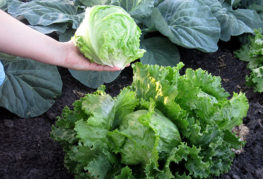
and will be published shortly.